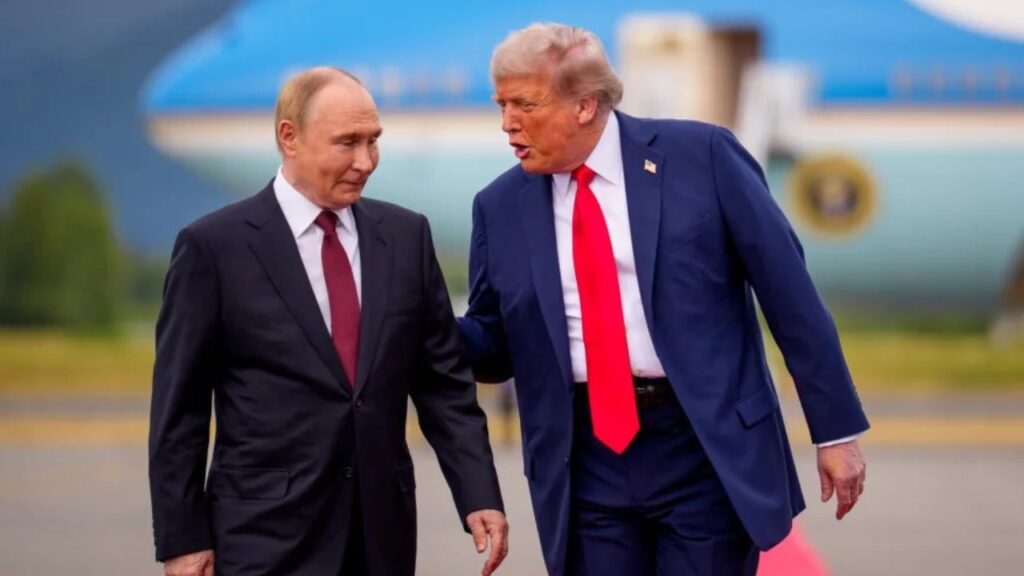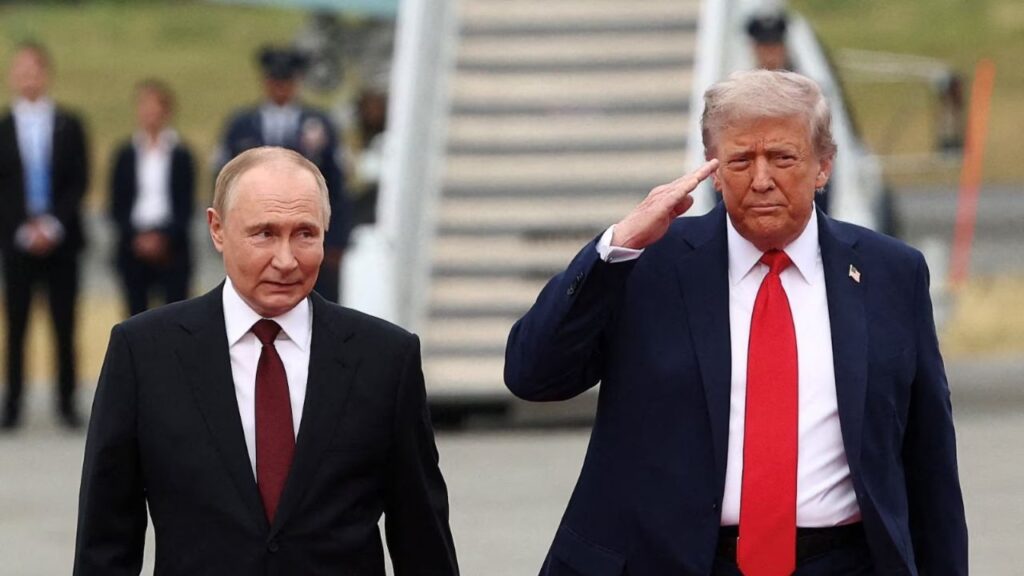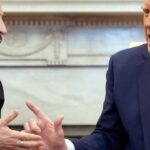A senior Trump administration official has revealed that Russian President Vladimir Putin agreed to unprecedented security concessions for Ukraine during a three-hour summit with President Donald Trump in Alaska, potentially reshaping the framework for future peace negotiations.
Breakthrough on Security Guarantees
Steve Witkoff, Trump’s top Middle East envoy who participated in the Friday summit at a U.S. military base in Anchorage, described the Russian leader’s agreement as “game-changing.” Putin consented to allow the United States and European allies to offer Ukraine Article 5-like security protections, marking a significant departure from previous Russian positions.
“We were able to win the following concession: That the United States could offer Article 5-like protection, which is one of the real reasons why Ukraine wants to be in NATO,” Witkoff explained during a Sunday CNN interview. He emphasized this represented “the first time we had ever heard the Russians agree to that.”
However, Witkoff declined to specify whether these security guarantees would include direct U.S. military engagement in Ukraine’s defense—a commitment that would contradict Trump’s long-standing opposition to American troop involvement in the conflict.

Summit Details and Immediate Outcomes
The Alaska meeting marked the first direct encounter between Trump and Putin in six years, focusing primarily on the ongoing war in Ukraine. While Trump has consistently advocated for regional peace, the talks did not produce an immediate ceasefire agreement.
Witkoff suggested that significant progress had been achieved on multiple components necessary for a comprehensive peace settlement, leading Trump to shift focus toward more detailed negotiations. “We are intent on trying to hammer out a peace deal that ends the fighting permanently very, very quickly, quicker than a ceasefire,” the envoy stated.
Territorial Disputes and Monday’s Critical Talks
The envoy remained evasive regarding Russian demands for Ukraine to cede the entire occupied Donbas region, indicating that territorial questions would be addressed in upcoming discussions with Ukrainian leadership.
“There is an important discussion to be had with regard to Donetsk and what would happen there. And that discussion is going to specifically be detailed on Monday, when President Zelensky arrives with his delegation,” Witkoff explained.
European Leaders Converge for White House Meeting
Ukrainian President Volodymyr Zelensky’s scheduled Monday meeting with Trump at the White House has attracted significant international attention, with multiple European leaders planning to participate. British Prime Minister Sir Keir Starmer will join the discussions, alongside Finnish President Alexander Stubb, German Chancellor Friedrich Merz, and French President Emmanuel Macron.
The European presence reflects concerns about potential tensions between Zelensky and Trump, with continental leaders seeking to ensure their voices remain central to future negotiation processes. Coverage has emphasized themes of damage control and European insistence on maintaining influence over Ukraine’s diplomatic future.

Administration’s Diplomatic Strategy
The Trump administration appears to be adopting a cautious approach toward additional pressure on Russia, signaling reluctance to impose further sanctions that might derail ongoing negotiations.
Secretary of State Marco Rubio, who also participated in the Alaska delegation, argued against immediate sanctions escalation during a separate Sunday ABC interview. “The minute you levy additional sanctions, strong, additional sanctions, the talking stops. Talking stops. And at that point, the war just continues,” Rubio explained.
He warned that continued conflict would result in “more people dead. More people killed. More people maimed. More families destroyed,” justifying the administration’s diplomatic approach over punitive measures.
Republican Party Divisions on Putin
The summit outcomes occur amid growing Republican skepticism about Putin’s genuine commitment to peace. Several prominent GOP senators have publicly challenged Trump’s earlier assertions about Russian intentions.
Senator Mike Rounds suggested in early August that Trump was becoming “clearly disappointed in Putin” and recognizing that congressional critics had been correct about Russian motivations. “I think he’s going to be very careful about what he does,” Rounds said regarding Trump’s position on further Russian sanctions.
Many Republicans have contradicted Trump’s February claim that Putin “wants peace” in Ukraine, reflecting evolving party sentiment about Russian leadership and the conflict’s trajectory.
Trilateral Summit Prospects
Witkoff indicated that a trilateral meeting involving Ukrainian, Russian, and American leaders was likely to occur “in the days ahead,” though he provided no specific timeline or location details. Such a summit would represent the highest-level diplomatic engagement since Russia’s invasion began.
The potential three-way talks would build upon the security guarantee breakthrough achieved in Alaska while addressing more complex territorial and political settlements that have remained elusive throughout the conflict.
Strategic Implications
The reported Russian concession on security guarantees represents a potentially significant diplomatic development, though crucial details remain unclear. The agreement could provide Ukraine with enhanced protection while offering Russia a pathway toward negotiated settlement rather than continued military confrontation.
However, the practical implementation of Article 5-like protections without NATO membership raises complex questions about enforcement mechanisms and American military commitments that the administration has yet to address publicly.
The confluence of European leader participation in Monday’s White House meeting and the Alaska summit’s reported progress suggests intensifying diplomatic momentum, though substantial obstacles to comprehensive peace settlement remain unresolved.






